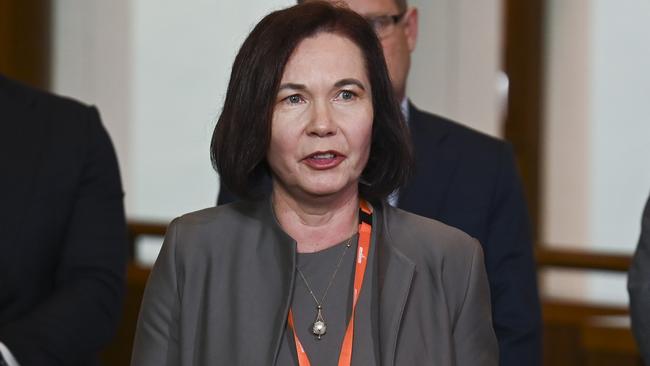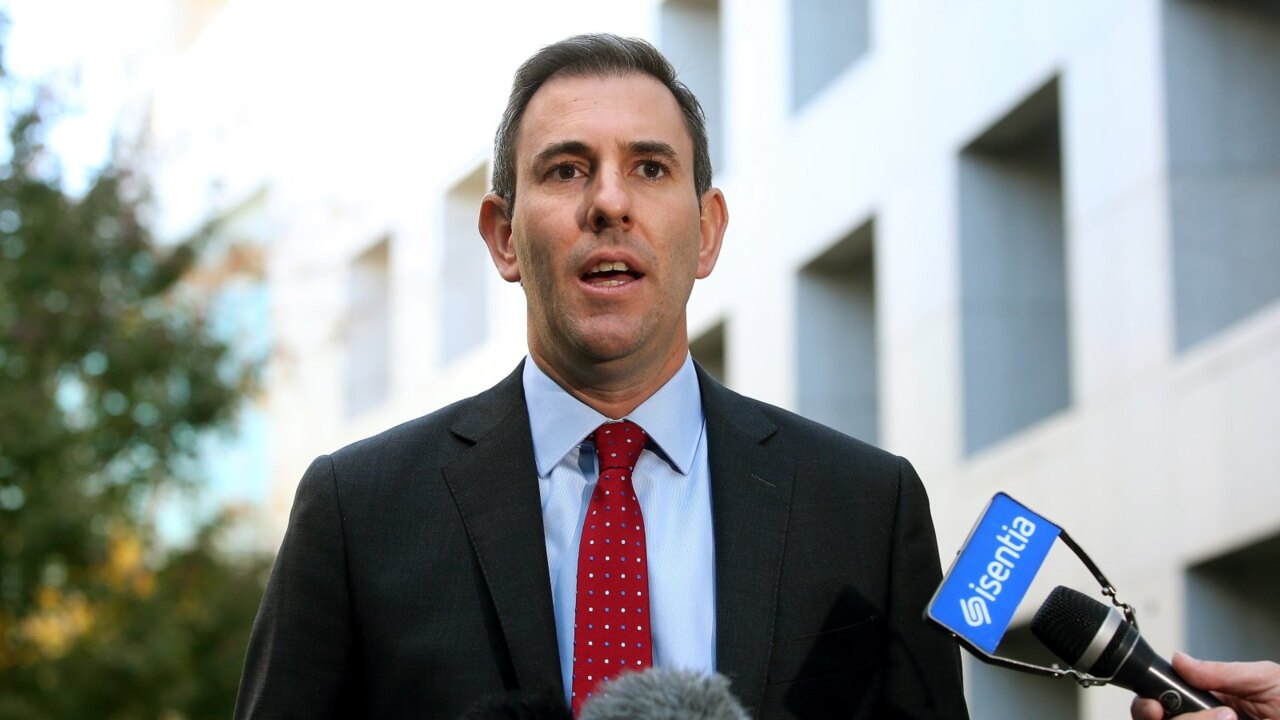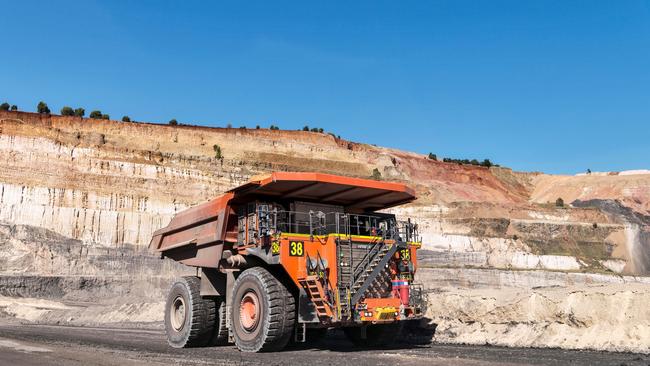Miners and gas producers issue budget eve warning to PM
Mining and gas chiefs have issued a pre-budget warning that investment, productivity, tax revenue and regional jobs are under threat unless Labor unshackles them from draconian policies.

Mining and gas chiefs have issued a pre-budget warning to Anthony Albanese and Jim Chalmers that investment, productivity, tax revenue and regional jobs are under threat unless Labor unshackles them from draconian and regressive policies and backs-in the gas industry.
With revenue from LNG, iron ore and coal exports propping-up Tuesday’s budget and an expected second surplus, while also pumping billions of dollars into the coffers of state governments, peak mining and gas industry leaders have put the Prime Minister and Treasurer on notice.
Minerals Council of Australia chief executive Tania Constable, who represents companies including BHP, Rio Tinto, Glencore, Roy Hill and Lynas Rare Earths, said the government must resist policies that deliver “short-term gains”.
Amid split opinions among miners over the long-term viability of production tax credits for struggling critical minerals and rare earths miners, the budget will include business incentives and subsidies to shield new mining ventures deemed critical to the net zero transition.

After Anthony Albanese and Resources Minister Madeleine King last week said gas would play a central role in the Australian economy to 2050 and beyond, new industry figures reveal oil and gas companies are on track to pay $17.1bn in taxes and royalties across 2023-24.
Australian Energy Producers chief executive Samantha McCulloch said the record tax windfall, which was higher than the $16.3bn paid in 2022-23, is equivalent to funding 11 new public hospitals, 250 schools or covering healthcare costs for 1.76 million Australians.
The record contribution to federal, state and territory governments, fuelled by a 5.3 per cent increase across combined company income tax, Petroleum Resource Rent Tax, state royalties and excise payments, will be used by the oil and gas industry to “underscore the sector’s critical role in Australia’s economy and energy security”.
The Albanese government, which has come under pressure from the Greens and climate groups to phase-out fossil fuels, last week strengthened its position on gas playing a key role in the net zero by 2050 transition.
With Labor state and federal governments being accused of not doing enough to unlock gas supply, Ms McCulloch said Mr Albanese’s Future Made in Australia policy “is not possible without gas”.
“Our national energy policy should reflect the central role gas will play in the Australian economy to 2050 and beyond,” she said.
Ms McCulloch said Labor’s Future Gas Strategy released last week “put beyond doubt that gas is essential to Australia’s energy transformation”.
“Investment in new gas supply is needed to ensure Australian households and businesses, and our trade partners, continue to have reliable and affordable energy,” she said.

Ms Constable said the government must avoid “the allure of initiatives delivering short-term gains and instead focus on addressing poor policy settings that foster a high-cost business environment if it is to fortify the minerals industry and, by extension, our country”.
“At a time when Australia grapples with decaying productivity and looming long-term structural fiscal deficits, the government is imposing regressive policies on the sector that dampens the investment growth critical to achieving our economic potential,” Ms Constable told The Australian.
“This includes a draconian 1970s industrial relations agenda, high energy, environmental, planning and taxation costs.
“The government cannot ignore the fact that the minerals industry is the cornerstone of the Australian economy and continues to underpin the nation’s economic performance.”
The mining industry chief, who led a cross-sector campaign against Labor’s IR reforms, said investment from mining companies made-up almost a third of total private sector investment last year.
Ahead of the budget, the MCA has endorsed that Albanese government commitments to spend $566m over the decade to ramp up mining exploration and changes to Australia’s foreign investment framework streamlining approvals and accelerating funding for critical minerals and tech.
Ms Constable said recognising mining and powerhouse commodities including iron ore, coal and LNG in the budget would “send a strong positive signal to the people living and working in regional Australia”.
“If the government wants to sustain and enhance revenue from mining, one of Australia’s most significant and reliable sectors, we need stable and supportive policies to attract investment,” Ms Constable said.






